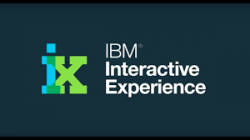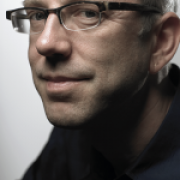WORLD IA DAY - ARCHITECTING HAPPINESS
When information is clear and considerate of the context in which we need it, there is a certain peaceful joy that washes over us. We feel loved or cared for. We crave the feeling that someone carefully considered our needs and expectations.
Whether it is the details that the chef has provided about the seasonal items on her menu or the interface that allows you to see the real time progress of robots racing on the moon, information holds the power to make us happy, gleeful, joyful, giddy, intrigued, relieved, enthralled and many other potent cocktails of emotions.
Our world is increasingly made of information, yet so much of that information is not as clear or accessible as it could be to those it is intended for. Every organization out there seems to say that they want to make their users happy, but who is really delivering on those promises? Who is really architecting for happiness?
On February 21, 2015 we want to ask the world to help us uncover answers to questions we believe to be critical to the future of how we practice information architecture:
- How can information affect happiness?
- How can we best architect structures for information that promote happiness?
- What work are organizations doing to bridge the gaps we face as we transition from a primarily analog to a primarily digital way of life?
Watch it live on Ustream
Enter via the Franklin Lobby at Franklin and Monroe. Please be prepared to show Photo ID to security.
Venue, parking and transit
Hosted by IBM Interactive Experience
6th Floor
Hyatt Center
71 S. Wacker Drive
Chicago, IL 60606
Program/Schedule
Check In, Breakfast Sponsored by VSA Partners and Welcome
Deconstructing Happiness-Where Happy Endings Begin
Designers wield great power when it comes to people’s well-being: we can generate excitement, bring joy, provoke anger or trigger anxiety – sometimes all in the same interaction. From the big decisions about a product’s purpose all the way down to the myriad pixel-level arguments lost and won, we have a great responsibility to safeguard the happiness of the users we serve. But what do we really know about the nature of happiness? And how can we actually make everyone happy?
Kathi Kaiser will kick off World IA Day 2015 by deconstructing the concept of “happiness” and offering designers a framework for considering the emotional impact of their work. She’ll explore the meaning, dimensions, and pre-conditions of happiness while examining the wide range of satisfying outcomes and their implications for design. Drawing on recent research in psychology as well as real-world design examples, Kathi will help attendees know when and how to evoke joy, humor, reassurance, comfort, and other positive feelings by providing guiding principles for the pursuit of happiness.
Architecting for Happiness Through Mobility
Mobile devices, sites and applications have opened up a new era of flexibility and engagement. This panel will highlight some of the initiatives that IBM has explored in this space such as our MobileFirst program and the Apple + IBM Partnership. Hear from IBM Mobile Designers, Project Managers, and Executives about the potential for mobile to create happier consumers, employees, and organizations.
Morning Break
Health, Happiness, and Heuristics
Bad design can make us feel badly about ourselves. We’ve all had the experience of feeling frustrated or even stupid when we couldn’t figure out how to use something. We are especially vulnerable when the interaction involves our health. And this is about more than usability. Subtle differences in design can motivate or discourage; lead us to engage or disconnect. What design heuristics should we use to create experiences that emotionally raise us up and help us succeed rather than make us feel badly and impede our motivations and actions towards better health?
Jim Henson and Prototyping (with Puppets)
When you can make just about anything, how do you know which option is the best one for modeling your ideas when it’s time to get started? Fifty years before ‘prototyping’ became a familiar concept, Jim Henson was mastering its foundational elements—using his muppets, of course. Henson also faced the same challenge that contemporary User Experience professionals know well: the paradox of prototyping choice; in tools and in process. Henson had notebooks full of ideas in various stages of development, and when he was ready to see which of his ideas were worth refining, he turned to sketching, storyboarding, patterns, iteration, and live testing to deterring his next steps.
Jim Henson was a UXer at his core. He cared about an authentic experience for his audience, and ensured that his team produced great work without spending any more time than was necessary to validate ideas. This early UXer can teach us a lot about how to apply those principles to the work we do today, with or without the help of Muppets.
Lunch Sponsored by Artisan Talent
Architecting Happiness Panel
Whether you’re a designer, a dentist, or a construction worker, one of the best things you can do to stay productive and creative is to craft a process that makes you happy. Hopefully, you’re making others happy in what you do, too.
Or maybe you’re not, and that may even be a viable approach.
Today’s discussion will examine what it could mean to design for happiness, whether it’s even possible, and how we might achieve that for ourselves, and the people that use our products.
Choice Architecture for Happier Decision-Making
As guardians of important data, information architects have the power to guide people towards life choices that impact their happiness— such as choosing the best-fit insurance plan that will protect their family against risk, offer flexibility, and not break the bank in the process. Choice architecture, or the art of framing available choices, plays a major role in decision-making, even more so in areas where people have little experience— and worry that their choices might seriously affect their health or finances. In her talk, GoHealth’s Director of User Experience Jessica Peterson will talk about how IA thinking intersects with the thoughtful presentation of options, that can influence whether consumers feel like happy partners in an important decision, or overwhelmed by the choice in front of them.
404 Moment of Truth: Rethinking ibm.com’s 404 Error Page
Working with IBM, a team at VSA investigated ways to transform the ibm.com 404 page into a driver of engagement and revenue. Typical 404 pages are either generic and unhelpful, or amusing and unhelpful. VSA sought to establish a new standard for ibm.com by making the page more:
- Purposeful
- Usable
- Relevant
- Informative
- Uniquely IBM
Encountering a 404 page represents a “moment of truth” for users – and an opportunity to show commitment at a time when users are especially interested. Keen on exploiting this opportunity, the team researched existing 404 pages, traffic analytics, and best practices, then designed and road tested prototypes to arrive at a long-term approach and an initial launch version of the 404 page. David will share the story at this session.
The Happiness Movement: The role of emotion in culture and design
How are you feeling? People are waking up to the power of emotion to shape our personal and professional lives. In startups and corporate board rooms ideas that once were considered the domain of granola crunching hippies and for-purpose organizations are being embraced for their ability to create massive impact on the organization's mission. It's not enough to make money, people want their work to make meaning. Learn how leading organizations work to build happiness into their culture and products.




















